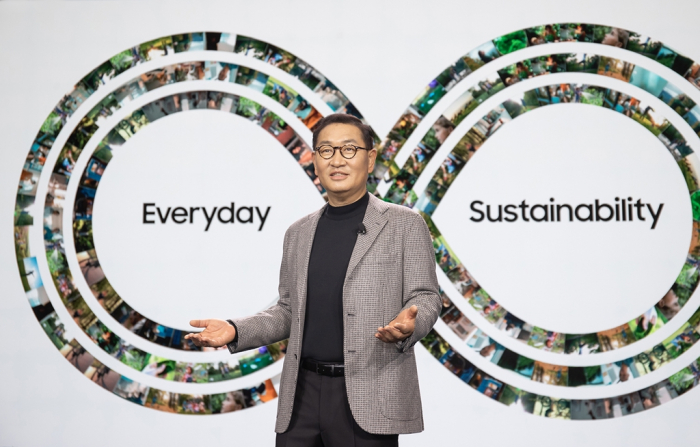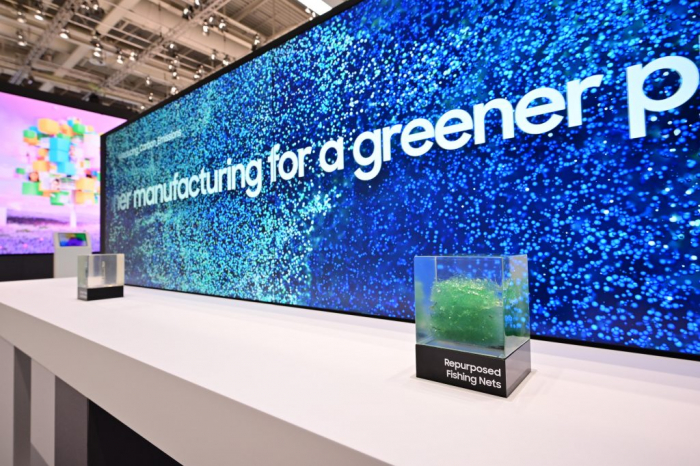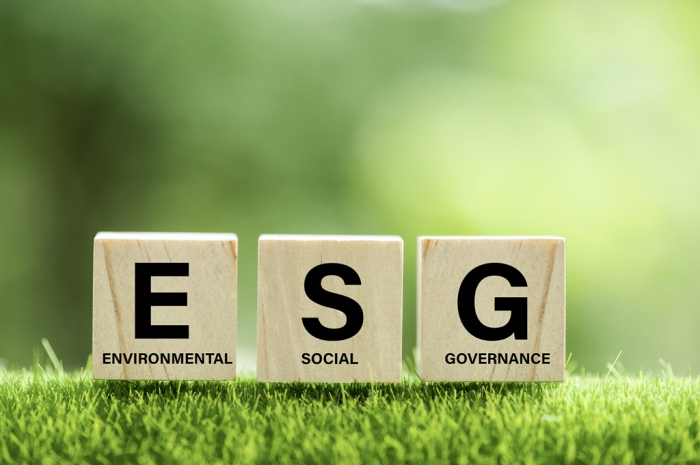ESG
Samsung goes green as it eyes clean tech supremacy across supply chain
With a $5 billion new investment, Samsung aims to lead the industry’s paradigm shift toward sustainable growth
By Sep 15, 2022 (Gmt+09:00)
4
Min read
Most Read
LG Chem to sell water filter business to Glenwood PE for $692 million


Kyobo Life poised to buy Japan’s SBI Group-owned savings bank


KT&G eyes overseas M&A after rejecting activist fund's offer


StockX in merger talks with Naver’s online reseller Kream


Mirae Asset to be named Korea Post’s core real estate fund operator



Samsung Electronics Co., the world’s largest smartphone and memory chipmaker, said on Thursday it is aiming to power its entire operations with clean electricity by 2050, joining a global carbon neutrality initiative.
The flagship unit of South Korea’s top conglomerate, analysts say, is setting its sights on clean energy technology as it ratchets up efforts to transform into an eco-friendly business group.
Announcing its new environmental, social and governance (ESG) strategy to tackle climate change, Samsung said it will achieve net zero carbon emissions for all its operations in its Device eXperience (DX) division by 2030 and across all global operations, including the Device Solution (DS) division, by 2050.
Samsung’s DX division is in charge of consumer electronics, smartphones, displays and networks, while the DS division includes the memory, system LSI and foundry businesses.
“We are responding to the threats of climate change with a comprehensive plan that includes reducing emissions, new sustainability practices and the development of innovative technologies and products that are better for our planet,” said Han Jong-hee, vice chairman and chief executive of Samsung Electronics.

RE100
As part of such efforts, Samsung said it is joining The Climate Group’s RE100 Initiative, under which it will develop new technologies to reduce power consumption across consumer electronics devices.
The company said it will apply its low-power technology to seven major products, in particular – smartphones, refrigerators, washing machines, air conditioners, TVs, monitors and PCs – with a goal to slash power use by 30% by 2030 compared to the 2019 level.
It plans to invest 7 trillion won ($5 billion) through 2030 on projects aimed at reducing emissions from process gases, controlling and recycling electronic waste, conserving water and minimizing pollutants. The investment excludes costs related to the expansion of renewable energy use, it said.
Samsung said it will apply its clean tech to the entire product lifecycle – from raw material sourcing to recycling and disposal.
By 2030, the company aims for half the plastic used in its products to incorporate recycled resin, raising the ratio to 100% by 2050. Samsung’s latest Galaxy Z Fold4 smartphones already use plastic recycled from discarded fishing nets.
Through these efforts, the company aims to collect 10 million tons of electronic waste between 2009 and 2030, the highest target in the industry.

CHALLENGING GOAL
Samsung’s embrace of the clean energy initiative comes late compared with other large Korean companies.
Fourteen Korean companies, including Hyundai Motor Co. and LG Energy Solution Ltd., have already committed to the RE100 Initiative.
Chipmaking is one of the sectors that consumes a lot of electricity.
Samsung said its chip production facilities use 70% of its total power consumption. And this electricity usage is expected to grow as the company rapidly adopts more advanced chip processing technology.
Semiconductor manufacturing also requires a huge amount of water to clean silicon wafers and cool down machines.
Currently, it uses 164 million tons of water annually at its 32 production bases around the world.
Samsung expects the use of water at its chip operations to double by 2030 from the current level but said it will maximize water reuse to keep water consumption at the 2021 level by then.

INVESTORS WELCOME SAMSUNG’S MOVE
Samsung, whose carbon dioxide emissions reached 17 million tons in 2021, said its carbon neutrality goal, if achieved, would have the same effect as suspending the operation of 8 million cars.
Experts say Samsung’s green power pledge is a challenging goal, which Korea’s modest climate change commitments could hamper.
But joining the RE100 initiative will improve its export competitiveness, given the tightening of global environmental regulations.
Europe’s largest pension fund manager APG said Samsung’s latest move will help dissipate long-term investors’ concerns over its ESG management.
In February, APG Asset Management said Korean companies’ carbon emissions are significantly higher than their global peers, urging Samsung and nine other major Korean firms to drastically cut emissions to combat climate change.
The pension fund manager is known to have made about $2.5 billion in equity investments in the 10 Korean companies.
Write to Shin-Young Park at nyusos@hankyung.com
In-Soo Nam edited this article.
More to Read
-
 EnergyLG, SK, Hanwha accelerate shift to renewable energy with push for RE100
EnergyLG, SK, Hanwha accelerate shift to renewable energy with push for RE100Feb 10, 2021 (Gmt+09:00)
3 Min read -
 Carbon neutralitySamsung Electronics to announce plans to join RE100 Initiative
Carbon neutralitySamsung Electronics to announce plans to join RE100 InitiativeAug 14, 2022 (Gmt+09:00)
3 Min read -
 Carbon neutralityNaver joins RE100 campaign to go carbon-free by 2050
Carbon neutralityNaver joins RE100 campaign to go carbon-free by 2050Aug 23, 2022 (Gmt+09:00)
1 Min read -
 ElectronicsSamsung’s new foldables: High-stakes game changers in smartphones
ElectronicsSamsung’s new foldables: High-stakes game changers in smartphonesAug 10, 2022 (Gmt+09:00)
3 Min read -
 ESGAPG urges Samsung, other Korean carbon emitters to take action
ESGAPG urges Samsung, other Korean carbon emitters to take actionFeb 17, 2022 (Gmt+09:00)
3 Min read
Comment 0
LOG IN


